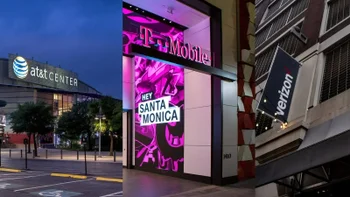Will Dish finish its 5G network before filing for bankruptcy?

Dish Network's Boost Mobile wireless service made some headlines last month when Boost Mobile and Boost Infinite combined to create the new Boost Mobile. The new Boost Mobile covers 99% of the U.S. with 5G and is using a cutting-edge standalone 5G network. That means that the network has a 5G core and isn't a 4G LTE network with 5G capabilities slapped on top of it. As a result, customers enjoy faster speeds and lower latency while the carrier can squeeze more capacity on the network.
While this is good news for Dish, the "B" word is once again being associated with the company that owns Boost Mobile. No, the "B" doesn't stand for "Boost." It stands for bankruptcy. We first mentioned that Dish and bankruptcy together last November when the company's Q3 earnings report failed to meet analysts' expectations. There is nothing like a stock analyst scorned.
Analysts at MoffettNathanson LLC, an equity research firm that focuses on tech, media, and telecom, told clients at the time that the third-quarter earnings report was bad and added that "The overwhelming probability here has always been that Dish would enter bankruptcy sometime in the next few years. Today’s results likely accelerate that."
It also appeared that Dish was in the middle of a cash crunch when it had to allow an option that it owned to buy 800MHz of low-band spectrum from T-Mobile for $3.59 billion to expire. Dish was forced to let the option go even after it paid T-Mobile a non-refundable $100 million to extend the expiration date of the option by one month.
As 2024 began, EchoStar merged with Dish. On May 8th Craig Moffett, co-founder of the aforementioned MoffettNathanson, predicted that the most likely outcome for Dish was a bankruptcy filing over the next four to six months. This time period is closing in and a possible bankruptcy is not surprising. After all, even EchoStar noted in an SEC filing made last March that Dish will burn through a "substantial amount of cash" in the next 12 months which "raises substantial doubt about [the company's] ability to continue as a going concern."
Moffett has a more recent forecast for Dish saying that "We believe EchoStar is instead highly likely to go bankrupt, quite possibly by the end of the year." To make matters worse, Dish will need to spend $3 billion to finish its 5G network and there is a legitimate question about whether this can be accomplished before a bankruptcy filing is made.
A bankruptcy filing doesn't necessarily mean that Dish will go out of business. A Chapter 11 filing would protect Dish from its creditors while the company restructures its business. Perhaps getting out from beneath its large pile of debt will turn out to be exactly what Dish needs at the moment in order to compete with Verizon, AT&T, and T-Mobile.
Follow us on Google News













Things that are NOT allowed:
To help keep our community safe and free from spam, we apply temporary limits to newly created accounts: